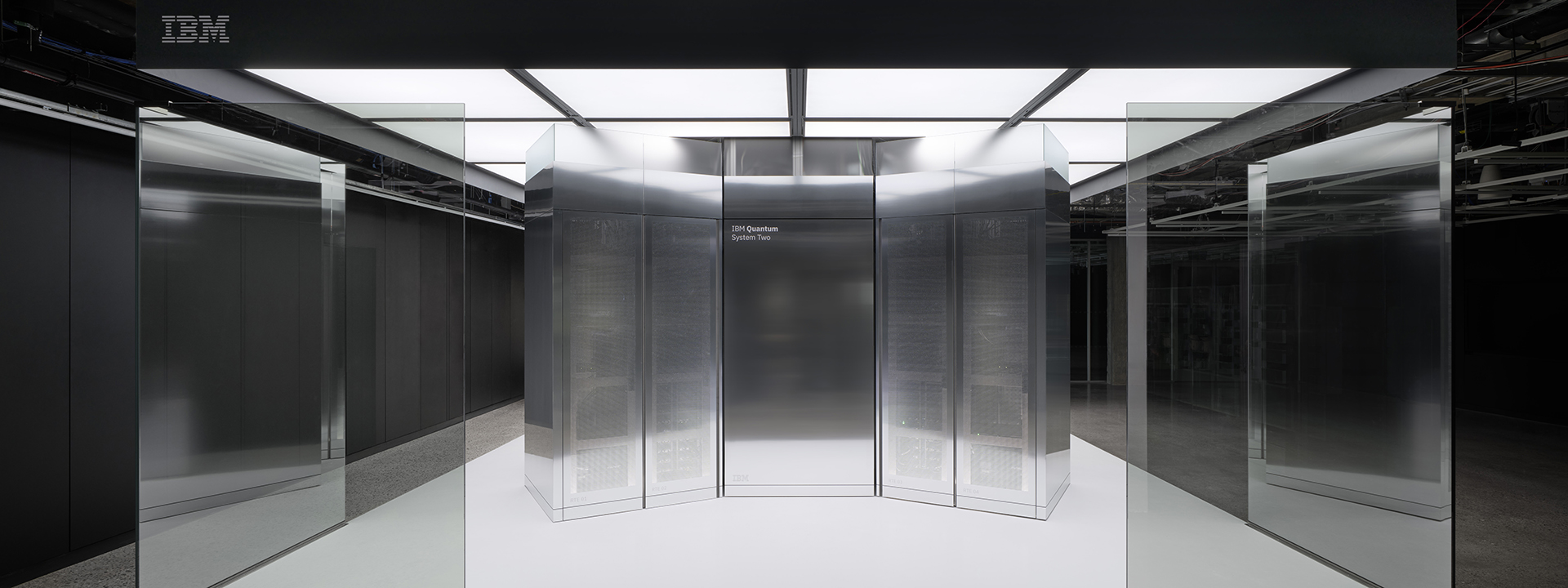Apr 28, 2025

ARMONK, N.Y., April 28, 2025 /PRNewswire/ -- Today IBM (NYSE: IBM) announced plans to invest $150 billion in America over the next five years to fuel the economy and to accelerate its role as the global leader in computing. This includes an investment of more than $30 billion in research and development to advance and continue IBM's American manufacturing of mainframe and quantum computers.
"Technology doesn't just build the future — it defines it," said Arvind Krishna, IBM chairman, president and chief executive officer. "We have been focused on American jobs and manufacturing since our founding 114 years ago, and with this investment and manufacturing commitment we are ensuring that IBM remains the epicenter of the world's most advanced computing and AI capabilities."
IBM is one of the nation's largest technology employers and has ushered in innovations that include the data processing systems that enabled the U.S. social security system, the Apollo Program that put a man on the moon, and power businesses in every industry.
That legacy continues in Poughkeepsie, New York, where we manufacture the cutting-edge mainframes that are the technology backbone of the American and global economies. More than 70% of the entire world's transactions by value run through the IBM mainframes that are manufactured right here in America.
IBM also operates the world's largest fleet of quantum computer systems, and will continue to design, build and assemble quantum computers in America. Quantum computing represents one of the biggest technology platform shifts and economic opportunities in decades and will solve problems that today's conventional computers cannot solve. Enabling these solutions will not only help us better understand the fundamentals of how the world works but are projected to transform American competitiveness, jobs, and national security. IBM's Quantum Network provides access to IBM's quantum systems for nearly 300 Fortune 500 companies, academic institutions, national laboratories, and startups and is accessed by over 600,000 active users.
Today's announcement reaffirms IBM's unwavering commitment to the future of American innovation, igniting new economic opportunity in the United States and around the world.
About IBM
IBM is a leading provider of global hybrid cloud and AI, and consulting expertise. We help clients in more than 175 countries capitalize on insights from their data, streamline business processes, reduce costs, and gain a competitive edge in their industries. Thousands of governments and corporate entities in critical infrastructure areas such as financial services, telecommunications and healthcare rely on IBM's hybrid cloud platform and Red Hat OpenShift to affect their digital transformations quickly, efficiently, and securely. IBM's breakthrough innovations in AI, quantum computing, industry-specific cloud solutions and consulting deliver open and flexible options to our clients. All of this is backed by IBM's long-standing commitment to trust, transparency, responsibility, inclusivity, and service. Visit www.ibm.com for more information.
Media Contact:
Ashley Bright
IBM
brighta@us.ibm.com
SOURCE IBM

ARMONK, N.Y., April 28, 2025 /PRNewswire/ -- Today IBM (NYSE: IBM) announced plans to invest $150 billion in America over the next five years to fuel the economy and to accelerate its role as the global leader in computing. This includes an investment of more than $30 billion in research and development to advance and continue IBM's American manufacturing of mainframe and quantum computers.
"Technology doesn't just build the future — it defines it," said Arvind Krishna, IBM chairman, president and chief executive officer. "We have been focused on American jobs and manufacturing since our founding 114 years ago, and with this investment and manufacturing commitment we are ensuring that IBM remains the epicenter of the world's most advanced computing and AI capabilities."
IBM is one of the nation's largest technology employers and has ushered in innovations that include the data processing systems that enabled the U.S. social security system, the Apollo Program that put a man on the moon, and power businesses in every industry.
That legacy continues in Poughkeepsie, New York, where we manufacture the cutting-edge mainframes that are the technology backbone of the American and global economies. More than 70% of the entire world's transactions by value run through the IBM mainframes that are manufactured right here in America.
IBM also operates the world's largest fleet of quantum computer systems, and will continue to design, build and assemble quantum computers in America. Quantum computing represents one of the biggest technology platform shifts and economic opportunities in decades and will solve problems that today's conventional computers cannot solve. Enabling these solutions will not only help us better understand the fundamentals of how the world works but are projected to transform American competitiveness, jobs, and national security. IBM's Quantum Network provides access to IBM's quantum systems for nearly 300 Fortune 500 companies, academic institutions, national laboratories, and startups and is accessed by over 600,000 active users.
Today's announcement reaffirms IBM's unwavering commitment to the future of American innovation, igniting new economic opportunity in the United States and around the world.
About IBM
IBM is a leading provider of global hybrid cloud and AI, and consulting expertise. We help clients in more than 175 countries capitalize on insights from their data, streamline business processes, reduce costs, and gain a competitive edge in their industries. Thousands of governments and corporate entities in critical infrastructure areas such as financial services, telecommunications and healthcare rely on IBM's hybrid cloud platform and Red Hat OpenShift to affect their digital transformations quickly, efficiently, and securely. IBM's breakthrough innovations in AI, quantum computing, industry-specific cloud solutions and consulting deliver open and flexible options to our clients. All of this is backed by IBM's long-standing commitment to trust, transparency, responsibility, inclusivity, and service. Visit www.ibm.com for more information.
Media Contact:
Ashley Bright
IBM
brighta@us.ibm.com
SOURCE IBM

